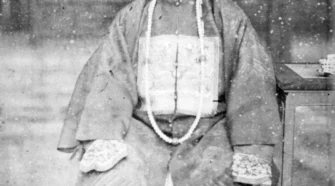善行無轍迹,善言無瑕讁;善數不用籌策;
善閉無關楗而不可開,善結無繩約而不可解。
是以聖人常善救人,故無棄人;是谓袭明。
故善人者,不善人之師;不善人者,善人之資。
不貴其師,不愛其資,雖智大迷,是謂要妙。
Good deeds are unmarked.
Good words are flawless.
The good counter does not need to use a tool.
A good closure cannot be opened, even without a lock.
A good knot cannot be untied for it does not have a rope.
A capable leader is one who is good at rescuing people, so that none are abandoned;
He is also good at saving things so that there is nothing left to be abandoned; This is to hide his light and strength.
Good people can be the teachers of bad people, yet good people can learn lessons from bad people.
The good will not boast about being a teacher, nor spare his glory and capital, while the wise yet look confused to the people, this is the crux of mystery.

If we understand what Lao Tzu meant the word “good,” it will make it easier for us to understand the text of this chapter. By “good,” he means those people that search for and practice the Tao. They are different from commoners; thus they will disregard outward material things such as fame and wealth, and have the five goods in them.
They do not do good deeds to show off or use good words to attack others. They count without tools, provide good closure without locks and none can open, and tie knots without ropes so no one can untie it.
Again, he stresses that helping people and things and putting them to good use, makes it so there will not be abandoned people nor things. He cares for them. What he does is for good and follows the rules of nature. His fame, credits, and wealth…no longer serve any purpose for him. It is his nature to hide his broad light and to be just humble, for a wise man does not show off, but turns the light inward and searches his heart.



